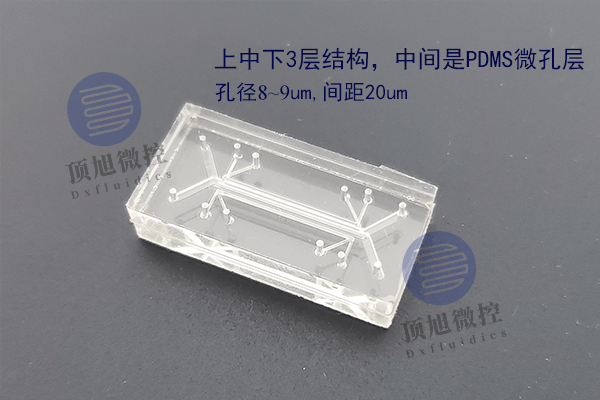Cell culture microarrays, also known as cell chips or microfluidic cell culture chips, are an innovative tool in the field of cell biology that is changing the landscape of cell research and medical applications in unprecedented ways.
This article will describe the fundamentals of cell culture microarrays, their application areas, and their potential impact in research and medicine.
What is a cell culture chip?
A cell culture chip is a miniature laboratory device, usually made from a combination of microfluidics, microelectronics and biological principles.
Its core idea is to combine cell culture with microfluidics to achieve highly precise control and monitoring of cells through tiny channels and microfluidic manipulation techniques. This allows researchers to perform cell culture experiments on a very small scale to mimic a more natural physiological environment.
Cell Microarray Fundamentals
The basic principles of cellular microarrays include the following:
- Microfluidic Manipulation: This is the core technology of the cell chip, which manipulates the flow of cell culture fluid through tiny fluid channels, valves and pumps. This allows researchers to control cell culture conditions, such as nutrient supply, gas concentration and temperature, in real time.
- Cell Localization and Observation: Cell microarrays often contain tiny channels and camera systems that allow real-time monitoring of cell growth, division, and interactive processes. This helps researchers gain a deeper understanding of cell behavior.
- High-throughput experiments: Since the cell chip can handle multiple tiny culture chambers at the same time, high-throughput experiments can be realized, saving time and resources.
Application Areas:
Cell culture microarrays have a wide range of applications in several fields, including:
- Drug Screening and R&D: Cell culture microarrays can help drug developers test the toxicity and efficacy of drug candidates more quickly and accurately, thereby accelerating the development of new drugs.
- Cancer Research: By culturing cancer cells on a chip, researchers can better understand the mechanisms by which cancer grows and spreads, helping to find new treatments.
- Stem Cell Research: Cell culture microarrays provide an ideal platform for studying stem cell properties and potential applications such as tissue engineering and regenerative medicine.
- Immunology Research: Microarrays can be used to study the functions and interactions of immune cells, helping us to better understand how the immune system works.
Potential Impact of Microfluidic Cell Culture Chips
The development of microfluidic cell culture chips represents a revolutionary advance in the field of cell biology research. It promises to accelerate drug discovery, improve disease research, and advance personalized medicine.
In addition, the tiny scale and high efficiency of microfluidic cell culture chips help to reduce reliance on laboratory animals, thus promoting more ethical and sustainable research methods.
In conclusion, microfluidic cell culture microarrays are a major innovation in the field of cell biology that will continue to change our understanding of the life sciences, bring more opportunities for medical research and treatment, and provide a broader outlook for the future of health sciences.
processing capability

- Material: PDMS, Plastic (PC/Acrylic)
- Micro-runner processing capability: PDMS material (runner scale over 2um), PC material (runner scale over 0.1mm)
- PDMS microporous membrane: PDMS microporous membrane thickness 20~30um, PDMS microporous membrane pore size 8um~10um, pitch 20um (other specifications can be customized)
- Other structures can be customized by contacting customer service
Contact Information

© 2025. All Rights Reserved. 苏ICP备2022036544号-1















